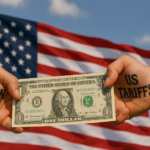New EU Energy Efficiency Regulations: What You Need to Know
The European Union (EU) has introduced new energy efficiency regulations aimed at reducing energy consumption and mitigating the impact of climate change. The regulations, which come into effect in 2023, will affect businesses, organizations, and individuals across the EU. In this article, we’ll break down the key points you need to know to ensure compliance and take advantage of the opportunities presented by these new regulations.
Background and Objectives
The EU’s energy efficiency regulations are part of a broader strategy to reduce greenhouse gas emissions and meet the goals set out in the Paris Agreement. The regulations aim to reduce energy consumption by at least 32.5% by 2030 compared to 2005 levels. To achieve this, the EU has set a series of targets for energy efficiency, including a 20% reduction in energy consumption by 2030.
Why Energy Efficiency Matters
Energy efficiency is crucial for several reasons. Firstly, it helps to reduce energy consumption, which in turn reduces greenhouse gas emissions and mitigates climate change. Secondly, it can help to reduce energy costs for businesses and households, making it a valuable investment opportunity. Finally, energy efficiency can improve the overall performance and reliability of buildings and equipment, leading to increased productivity and competitiveness.
The new EU energy efficiency regulations introduce several key provisions that will affect businesses, organizations, and individuals across the EU. These provisions include:
Energy-Related Products (ErP) Directive
The ErP Directive sets minimum energy efficiency standards for a range of products, including lighting, refrigeration, and heating systems. Manufacturers must ensure that their products meet these standards, which will lead to significant reductions in energy consumption and emissions.
The building renovation directive requires member states to develop and implement plans to renovate buildings and reduce energy consumption. This includes retrofitting existing buildings with energy-efficient technologies and improving building design and construction standards.
The energy audit directive requires large companies and public sector organizations to conduct energy audits and obtain energy certificates. These audits will help identify areas for energy efficiency improvements and provide a framework for implementing these improvements.
The EEOs require energy suppliers to achieve energy efficiency savings through a range of measures, including energy efficiency retrofitting, energy-efficient lighting, and energy-efficient heating systems. Energy suppliers must also report on their energy efficiency achievements and provide consumers with information on energy efficiency opportunities.
The new EU energy efficiency regulations will be implemented over the next few years. The key milestones include:
The new regulations will come into effect on the following dates:
- 2023: ErP Directive and energy audit directive
- 2024: Building renovation directive
- 2025: EEOs
While the new EU energy efficiency regulations present challenges for some businesses and organizations, they also present significant benefits and opportunities. These benefits include:
The regulations will lead to significant energy savings and cost reductions for businesses and households. According to the EU, energy efficiency measures can save businesses up to 20% on energy costs.
The regulations will also create significant investment opportunities in the energy efficiency sector. This includes investment in energy-efficient technologies, building renovations, and energy audits.
The regulations will also lead to the development of new business models and revenue streams. For example, energy suppliers will be able to offer energy efficiency services and products to their customers.
The new EU energy efficiency regulations present a significant opportunity for businesses, organizations, and individuals to reduce energy consumption, mitigate climate change, and create new revenue streams. By understanding the key provisions and impacts of the regulations, we can work together to create a more sustainable and efficient energy future.
Q: What are the main goals of the new EU energy efficiency regulations?
A: The main goals are to reduce energy consumption and greenhouse gas emissions, improve energy efficiency, and promote sustainable development.
Q: How will the regulations affect my business?
A: The regulations will require your business to improve energy efficiency, reduce energy consumption, and report on energy efficiency achievements. However, they will also create new opportunities for investment, cost savings, and revenue growth.
Q: What steps can I take to ensure compliance with the regulations?
A: You can start by conducting an energy audit, implementing energy-efficient technologies, and reporting on your energy efficiency achievements. You should also stay up-to-date with the latest developments and regulations in the energy efficiency sector.
Q: What are the penalties for non-compliance with the regulations?
A: Non-compliance with the regulations can result in fines and penalties. However, it’s important to note that the regulations are designed to promote energy efficiency and sustainable development, and compliance will ultimately benefit your business and the environment.



.png?w=150&resize=150,150&ssl=1)

.png?w=150&resize=150,150&ssl=1)

